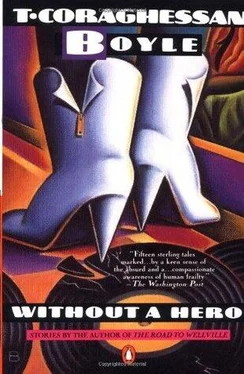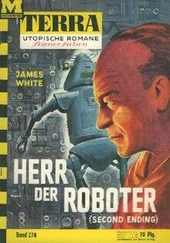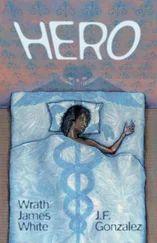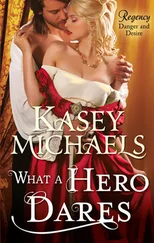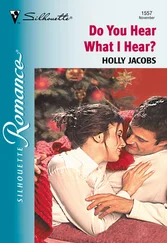T. Boyle - Without a Hero
Здесь есть возможность читать онлайн «T. Boyle - Without a Hero» весь текст электронной книги совершенно бесплатно (целиком полную версию без сокращений). В некоторых случаях можно слушать аудио, скачать через торрент в формате fb2 и присутствует краткое содержание. Год выпуска: 1995, Издательство: Penguin Books, Жанр: Современная проза, на английском языке. Описание произведения, (предисловие) а так же отзывы посетителей доступны на портале библиотеки ЛибКат.
- Название:Without a Hero
- Автор:
- Издательство:Penguin Books
- Жанр:
- Год:1995
- ISBN:нет данных
- Рейтинг книги:3 / 5. Голосов: 1
-
Избранное:Добавить в избранное
- Отзывы:
-
Ваша оценка:
- 60
- 1
- 2
- 3
- 4
- 5
Without a Hero: краткое содержание, описание и аннотация
Предлагаем к чтению аннотацию, описание, краткое содержание или предисловие (зависит от того, что написал сам автор книги «Without a Hero»). Если вы не нашли необходимую информацию о книге — напишите в комментариях, мы постараемся отыскать её.
Greasy Lake
People
Without a Hero
The Philadelphia Inquirer
Without a Hero — читать онлайн бесплатно полную книгу (весь текст) целиком
Ниже представлен текст книги, разбитый по страницам. Система сохранения места последней прочитанной страницы, позволяет с удобством читать онлайн бесплатно книгу «Without a Hero», без необходимости каждый раз заново искать на чём Вы остановились. Поставьте закладку, и сможете в любой момент перейти на страницу, на которой закончили чтение.
Интервал:
Закладка:
There were no blacks in our school, there were no Asians or Hispanics. Italians, Poles, Jews, Irish, the descendants of the valley’s Dutch and English settlers, these we had, these we were, but Maki Duryea was the first black — and the first Asian. Casper’s father was Jewish, his mother a Polish Catholic. Casper had the soaring IQ of a genius, but he was odd, skewed in some deep essential way that set him apart from the rest of us. He was the first to masturbate, the first to drink and smoke, though he cared for neither. He caused a panic throughout the school when he turned up missing one day after lunch and was found, after a room-by-room, locker-by-locker search, calmly reading on the fire escape; he burst from his chair at the back of the classroom once and did fifty frantic squat-thrusts in front of the hapless teacher and then blew on his thumb till he passed out. He was my best friend.
He turned to me then, on the bus, and broke off his chant. His eyes were the color of the big concrete dome, his head was shaved to a transparent stubble. “She stinks,” he said, grinning wildly, his eyes leaping at my own. “Maki Duryea, Maki Duryea, Maki Duryea”—he took up the chant again before subsiding into giggles. “They don’t smell like we do.”
My family was Irish. Irish, that’s all I knew. A shirt was cotton or it was wool. We were Irish. No one talked about it, there was no exotic language spoken in the. house, no ethnic dress or cuisine, we didn’t go to church. There was only my grandfather.
He came that year for Thanksgiving, a short big-bellied man with close-cropped white hair and glancing white eyebrows and a trace of something in his speech I hadn’t heard before — or if I had it was in some old out-of-focus movie dredged up for the TV screen, nothing I would have remembered. My grandmother came too. She was spindly, emaciated, her skin blistered with shingles, a diabetic who couldn’t have weighed more than ninety pounds, but there was joy in her and it was infectious. My father, her son, woke up. A festive air took hold of the house.
My grandfather, who years later dressed in a suit for my father’s funeral and was mistaken for a banker, had had a heart attack and he wasn’t drinking. Or rather, he was strictly enjoined from drinking and my parents, who drank themselves, drank a lot, drank too much, took pains to secrete the liquor supply. Every bottle was removed from the cabinet, even the odd things that hadn’t been touched in years — except by me, when I furtively unscrewed the cap of this or that and took a sniff or touched my tongue tentatively to the cold hard glass aperture — and the beer disappeared from the refrigerator. I didn’t know what the big deal was. Liquor was there, a fact of life, it was unpleasant and adults indulged in it as they indulged in any number of bizarre and unsatisfactory practices. I kicked a football around the rock-hard frozen lawn.
And then one afternoon — it was a day or two before Thanksgiving and my grandparents had been with us a week — I came in off the front lawn, my fingers numb and nose running, and the house was in an uproar. A chair was overturned in the corner, the coffee table was slowly listing over a crippled leg and my grandmother was on the floor, frail, bunched, a bundle of sticks dropped there in a windstorm. My grandfather stood over her, red-faced and raging, while my mother snatched at his elbow like a woman tumbling over the edge of a cliff. My father wasn’t home from work yet. I stood there in the doorway, numb from the embrace of the wind, and heard the inarticulate cries of those two women against the oddly inflected roars of that man, and I backed out the door and pulled it closed behind me.
The next day my grandfather, sixty-eight years old and stiff in the knees, walked two miles in twenty-degree weather to Peterskill, to the nearest liquor store. It was dark, suppertime, and we didn’t know where he was. “He just went out for a walk,” my mother said. Then the phone rang. It was the neighbor two doors down. There was a man passed out in her front yard — somebody said we knew him. Did we?
I spent the next two days — Thanksgiving and the day after — camping in the sorry patch of woods at the end of the development. I wasn’t running away, nothing as decisive or extreme as that — I was just camping, that was all. I gnawed cold turkey up there in the woods, lifted congealed stuffing to my mouth with deadened fingers. In the night I lay shivering in my blankets, never colder before or since.
We were Irish. I was Irish.
That winter, like all winters in those days, was interminable, locked up in the grip of frozen slush and exhaust-blackened snow. The dead dark hours of school were penance for some crime we hadn’t yet committed. The TV went on at three-thirty when we got home from school, and it was still on when we went to bed at nine. I played basketball that winter in a league organized by some of the fathers in the development, and three times a week I walked home from the fungus-infested gym with a crust of frozen sweat in my hair. I grew an inch and a half, I let my crewcut grow out and I began to turn up the collar of my ski jacket. I spent most of my time with Casper, but in spite of him, as the pale abbreviated days wore on, I found myself growing more and more at ease with the idea of Maki Duryea.
She was still foreign, still exotic, still the new kid and worse, much worse, the whole business complicated by the matter of her skin color and her hair and the black unblinking depths of her eyes, but she was there just like the rest of us and after a while it seemed as if she’d always been there. She was in the other section, but I saw her on the playground, in the hallway, saw her waiting on line in the cafeteria with a tray in her hands or struggling up the steps of the school bus in a knit hat and mittens no different from what the other girls wore. I didn’t have much to say to any of the girls really, but I suppose I must have said things to her in passing, and once, coming off the playground late, I found myself wedged up against her on the crowded school bus. And then there was the time the dancing teacher, with a casual flick of her wrist, paired me off with her.
Everything about dancing was excruciating. It was not kickball, it was not basketball or bombardment. The potential for embarrassment was incalculable. We were restless and bored, the gymnasium was overheated against the sleet that rattled at the windows, and the girls, entranced, wore peculiar little smiles as Mrs. Feldman demonstrated the steps. The boys slouched against one adamantine wall, poking one another, shuffling their feet and playing out an elaborate ritual to demonstrate that none of this held the slightest interest for them, for us, though it did, and we were nervous about it despite ourselves. Alone, of all the two classes combined, Casper refused to participate. Mrs. Feldman sent him to the principal’s office without so much as a second glance, chose partners arbitrarily for the remainder of the class and started up the ancient phonograph and the arcane scratchy records of songs no one knew and rhythms no one could follow, and before I was fully cognizant of what was happening I found myself clutching Maki Duryea’s damp palm in my own while my arm lay like a dead thing across the small of her back. She was wearing a sweater thick enough for Arctic exploration and she was sweating in the choking humid jungle atmosphere of the gymnasium. I could smell her, but despite what Casper had said the heat of her body gave off a luxurious yeasty soporific odor that held me spellbound and upright through the droning eternity of the record.
The dance, the big dance that all this terpsichorean instruction was leading up to, was held on February 29, and Mrs. Feldman, in an evil twist of fate, decided to honor custom and have the girls invite the boys as their partners. We did perspective drawing in art class — great lopsided vistas of buildings and avenues dwindling in the distance — while the girls made up the invitations with strips of ribbon, construction paper and paste. My mind was on basketball, ice fishing, the distant trembling vision of spring and summer and liberation from Mrs. Feldman, the gym and the cafeteria and all the rest, and I was surprised, though I shouldn’t have been, when Maki’s invitation arrived. I didn’t want to go. My mother insisted. My father said nothing.
Читать дальшеИнтервал:
Закладка:
Похожие книги на «Without a Hero»
Представляем Вашему вниманию похожие книги на «Without a Hero» списком для выбора. Мы отобрали схожую по названию и смыслу литературу в надежде предоставить читателям больше вариантов отыскать новые, интересные, ещё непрочитанные произведения.
Обсуждение, отзывы о книге «Without a Hero» и просто собственные мнения читателей. Оставьте ваши комментарии, напишите, что Вы думаете о произведении, его смысле или главных героях. Укажите что конкретно понравилось, а что нет, и почему Вы так считаете.
